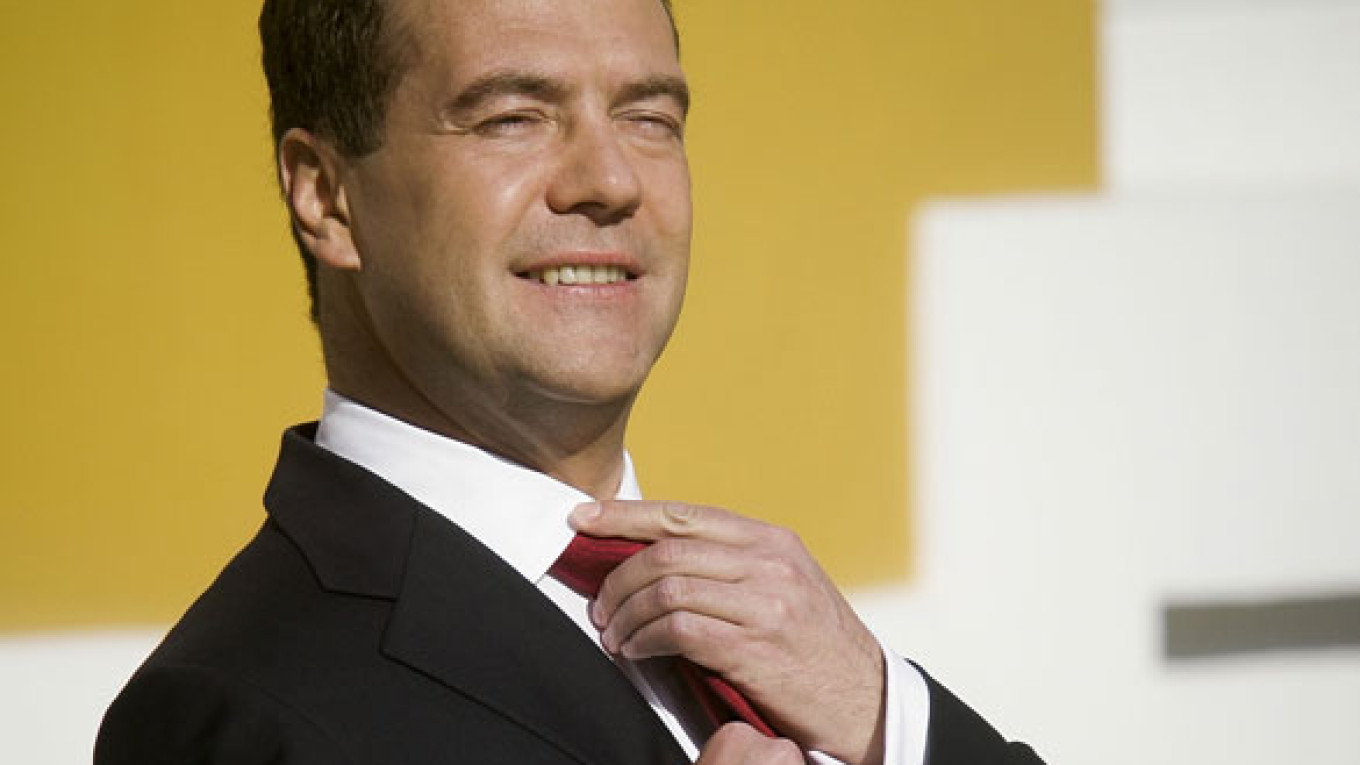A Moscow court has effectively pronounced the president's men untouchables by throwing out a lawsuit against a member of the presidential administration on the grounds that such complaints infringe on the president's immunity from prosecution.
The complaint was filed by the St. Petersburg-based Institute for Information Freedom Development, which had tried to sue a Kremlin official for ignoring its requests, the institute's director, Yelena Golubeva, told the Moscow Times on Wednesday.
But the Tverskoi District Court dismissed the suit against Mikhail Mikhailovsky, who heads the Kremlin's department for processing citizens' complaints.
Suing officials “who are directly subordinate to the president” in court “means a direct or indirect interference in the constitutional and legal … activities of the president who enjoys immunity as the head of state," the court said in the late April ruling, posted on the institute's web site, Svobodainfo.org, last Wednesday.
The institute will appeal the ruling in the Moscow City Court within two days, Golubeva said.
She said Judge Marina Salnikova's decision was “not based on laws, but ... on her personal unwillingness to consider our appeal.”
A spokesman for the Tverskoi Court said Salnikova would not comment on the case.
A spokeswoman for Mikhailovsky redirected a request for comment to the presidential administration's spokespeople, who were unavailable for comment Wednesday.
Yevgeny Ikhlov, a senior spokesman for the For Human Rights movement, and celebrity lawyer Igor Trunov said the Civil Procedures Code allowed the suing of any state official.
Ikhlov said the president was immune from criminal prosecution but not exempt from civil lawsuits.
Ikhlov called the judge's arguments "faked" and "artificial," while Trunov said the ruling was "not based on law."
"The judicial branch has to be independent from the executive branch, but we have big problems with that," Trunov said. "To achieve an unambiguous court ruling against an official in Russia is the domain of fiction," he said.
Ikhlov and Trunov said the Moscow City Court is likely to uphold the ruling in this case, and the appeal will have to proceed to the European Court of Human Rights.
The institute sent a complaint to Mikhailovsky in December, but he had failed to react to it as of Wednesday, Golubeva said. The law requires all officials to reply to formal requests within 30 days.
The complaint concerned actions of another member of the Kremlin staff, who in November redirected the institute's appeal to President Dmitry Medvedev about alleged “corrupt activities” of Mayor Yury Luzhkov to the Moscow City Court, Golubeva said, adding that she could not remember the official's name.
The institute accused Luzhkov of using the city's budget to "solve his personal issues," such as paying for defamation lawsuits that he filed against various people, Golubeva said.
Trunov called the institute's appeal to Medvedev about Luzhkov's alleged corruption "a good PR stunt," but said Medvedev could do nothing about it because only law enforcement agencies can prosecute for crimes.
Lawsuits concerning the president have not had much luck in courts in recent years.
In 2008, the Tverskoi District Court refused to consider a complaint against Medvedev for ignoring a request to hold a gay pride parade, Moscow's chief gay rights activist Nikolai Alexeyev said.
The Tverskoi Court ruled that the president was "not triable," Alexeyev said. Moscow City Court upheld the ruling, and an appeal is pending in the European Court of Human Rights, he said.
In 2005, the Supreme Court accepted a lawsuit against then-President Vladimir Putin filed by Albert Imendayev, a senior resident of Chuvashia, who protested Putin's nomination of Nikolai Fyodorov as the regional head, Noviye Izvestia reported. Nothing was heard about the outcome of the lawsuit, and Fyodorov was reappointed and remains the president of Chuvashia to this day.
But in 1996, former Vladivostok Mayor Viktor Cherepkov successfully appealed the decree of then-President Boris Yeltsin to dismiss him and was reinstated as mayor by a Moscow district court.
A Message from The Moscow Times:
Dear readers,
We are facing unprecedented challenges. Russia's Prosecutor General's Office has designated The Moscow Times as an "undesirable" organization, criminalizing our work and putting our staff at risk of prosecution. This follows our earlier unjust labeling as a "foreign agent."
These actions are direct attempts to silence independent journalism in Russia. The authorities claim our work "discredits the decisions of the Russian leadership." We see things differently: we strive to provide accurate, unbiased reporting on Russia.
We, the journalists of The Moscow Times, refuse to be silenced. But to continue our work, we need your help.
Your support, no matter how small, makes a world of difference. If you can, please support us monthly starting from just $2. It's quick to set up, and every contribution makes a significant impact.
By supporting The Moscow Times, you're defending open, independent journalism in the face of repression. Thank you for standing with us.
Remind me later.


